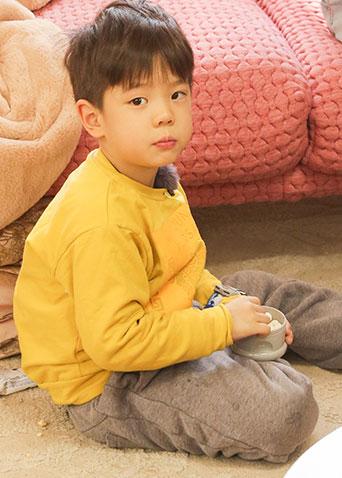陝西渭南有一名書生—陶望三,舔菊由於他為人風流瀟灑,舔菊自命不凡,因而惹起同窗們的妒忌。但卻被一富有人家姜大戶賞識,將女兒許配給他。陶為了認付考試,向姜大戶提出獨自往鬧鬼之蘆屋苦讀。惜卻被兩名女鬼苦纏,陶最終把兩女鬼制伏,更成為知已。此時,陶上京付考,卻遇上不幸,究竟兩女鬼能否幫陶脫離險境?
陝西渭南有一名書生—陶望三,舔菊由於他為人風流瀟灑,舔菊自命不凡,因而惹起同窗們的妒忌。但卻被一富有人家姜大戶賞識,將女兒許配給他。陶為了認付考試,向姜大戶提出獨自往鬧鬼之蘆屋苦讀。惜卻被兩名女鬼苦纏,陶最終把兩女鬼制伏,更成為知已。此時,陶上京付考,卻遇上不幸,究竟兩女鬼能否幫陶脫離險境?

回复 :一个来自市中心贫民区、在斯诺克上颇有天赋的孩子,一时头脑发热,卷入犯罪。当偶遇一位陌生人时,他得到了一个扭转命运的机会。但这是否为时已晚?斯宾塞•普莱德,这名颇具天资的斯诺克选手选择挥霍他的天赋,和他的朋友一道鬼混,并不时犯下小罪。但当事情开始失控,他回到了给予他安全感的避难所——当地的一所斯诺克俱乐部。在那里,他偶遇了一名陌生的中国人,文森特•强,这次邂逅将一个扭转命运的机会摆在了他的眼前。强是八球前世界冠军,他做起了斯宾塞的教练,让斯宾塞向着成为职业选手的目标前进。然而为了赢得新生活,斯宾塞需要脱离他的朋友圈子,脱离他所处的环境,脱离他现在的生活中一切消极的因素,他能够做到吗?
回复 :约翰(艾特·迪·彭吉云 Artus de Penguern 饰)和麦克(布鲁诺·萨拉曼 Bruno Salomone 饰)共同在父亲开设的诊所里工作,两人虽然是兄弟,但性格可谓是大相径庭。约翰喜欢上了诊所里美丽的女护士普莉希拉(伊莲娜·诺古哈 Héléna Noguerra 饰),可让他没有想到的是,普莉希拉竟然最终和大卫走到了一起。心碎的约翰决定离开诊所,离开这片伤心地。然而,当约翰得知麦克准备将诊所卖给整形医院,以偿还他欠下的巨额债务后,他坐不住了,他不能看到父亲一生的心血就这样付之东流,于是约翰回到了诊所。与此同时,诊所里新来的护士沙曼萨(娜塔莎·兰丁格尔 Natacha Lindinger 饰)也不是什么省油的灯。
回复 :转自:http://www.filmlinc.com/nyff/2010/views-from-the-avant-garde-friday-october-1/views-from-the-avant-garde-jean-marie-straub“The end of paradise on earth.”—Jean-Marie StraubThe 33rd verse and last chant of “paradise” in Dante’s Divine Comedy. The film starts with verse 67, “O somma luce…” and continues to the end. “O Somma luce” recalls the first words uttered by Empedocles in Danièle Huillet and Jean-Marie Straub’s 1987 The Death of Empedocles—“O himmlisch Licht!…” (O heavenly light!). This extract from Hölderlin’s text is also inserted into their 1989 film Cézanne.“O somma luce” invokes utopia, or better still “u-topos,” Dante, Holderlin, Cézanne… the camera movement, recalling Sisyphus, in the film’s long shots, suggests its difficulty.In O somma luce, with Giorgio Passerone’s Dante and the verse that concluded the Divine Comedy, we find at the extremity of its possibilities, the almost happy speech of a man who has just left earthly paradise, who tries to fully realize the potential of his nature. Between the two we find the story of the world. The first Jean-Marie Straub film shot in HD.So singular are the textual working methods of Straub-Huillet, and now Straub on his own, that it is hard to grasp how far reaching they are. Direction is a matter of words and speech, not emotions and action. Nothing happens at the edges, everything is at the core and shines from there alone.During the rehearsals we sense a slow process by which ingredients (a text, actors, an intuition) progress towards cohesiveness. It is, forgive the comparison, like the kneading of dough. It is the assembling and working of something until it becomes something else… and, in this case, starts to shine. Actually it’s very simple, it’s just a question of opening up to the light material that has been sealed up. Here, the process of kneading is to bring to life and then reveal. The material that is worked on is speech. So it is speech that becomes visible—nothing else. “Logos” comes to the cinema.The mise en scène of what words exactly?The process of revealing, “phainestai”; “phainomenon,” the phenomenon, is what take splace, what becomes visible to the eye.Is “Straubie” Greece?This mise en scène of speech, which goes beyond a close reading of the chosen text, is truly comes from a distant source.—Barbara Ulrich
